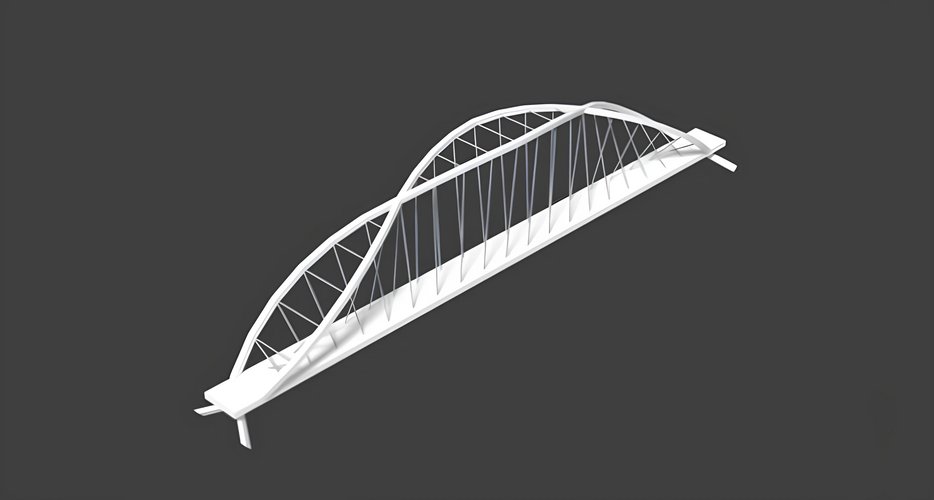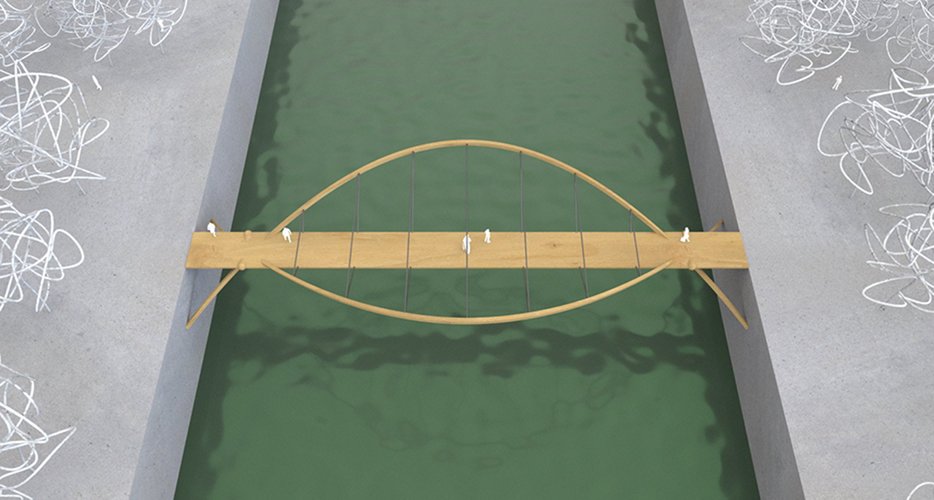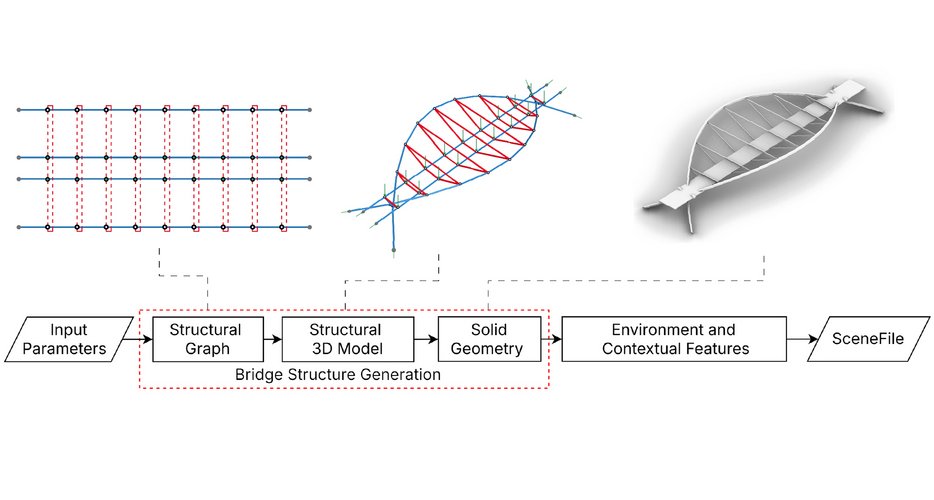Artificial Intelligence for the Automated Creation of a Digital Archive of Bridge Infrastructure (AIDABI)
A key way to maximize bridge infrastructure resources is by extending the lifespan of aging bridges through monitoring, maintenance, and rehabilitation. At the same time, new bridge designs can optimize material use by creating efficient structural forms based on successful examples of existing bridges, with global access to their geometric and structural data supporting both goals.
In this context, this project aims to develop an AI framework that automatically creates a digital archive of 3D mesh and structural models of existing bridges using online 2D images. First, a fully supervised machine learning (ML) model will be trained to link bridge images to 3D models, using a manually curated dataset of representative bridges. To generate these training models, computational methods such as combinatorial equilibrium modeling (CEM) and the finite element method (FEM) will be applied. Once trained, the ML model will leverage advanced 3D reconstruction techniques to generate 3D models of any bridge with available images. The framework’s effectiveness will be demonstrated through two real-world applications: maintenance of existing bridges and assisting the conceptual design of new ones. As a preliminary proof-of-concept, this study focuses on the semi-automatic generation of a synthetic bridge dataset specifically tailored for image-to-3D model ML workflows. This dataset will serve as the foundation for training an ML model for automated 3D reconstruction, which will be applied to real bridge images.
Research Team:
Cem Gunes, Prof. Dr. Pierluigi D'Acunto, Professorship of Structural Design, School of Engineering, Design, Technical University of Munich
Xinyi Zhang, Angela Dai Professorship of Machine Learning for 3D Scene Geometry, School of Computation, Information and Technology, Technical University of Munich
Funding programme:
TUM Georg Nemetschek Institute Artificial Intelligence for the Built World
Munich Data Science Institute
Duration:
01.2024 - 01.2028


